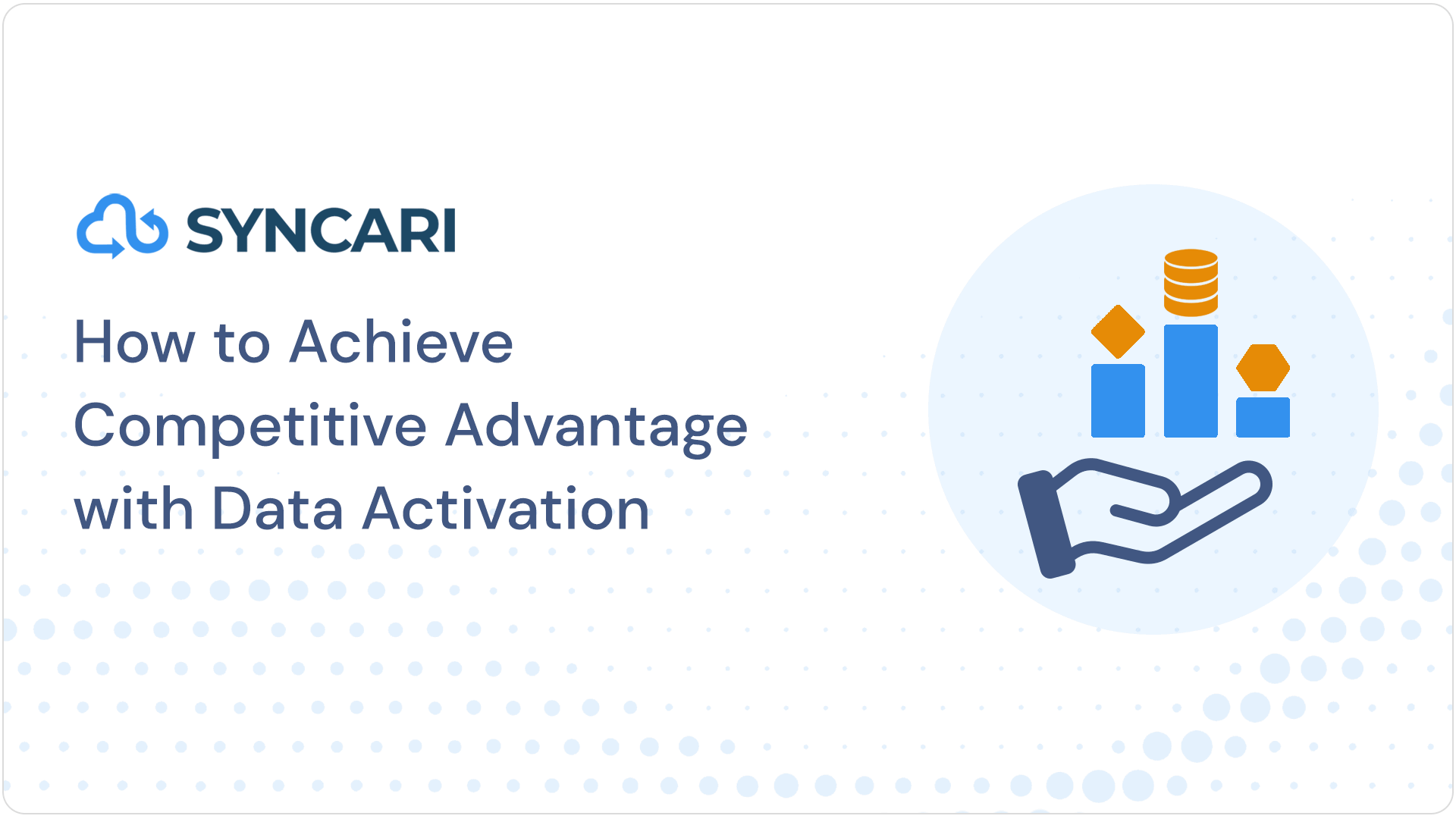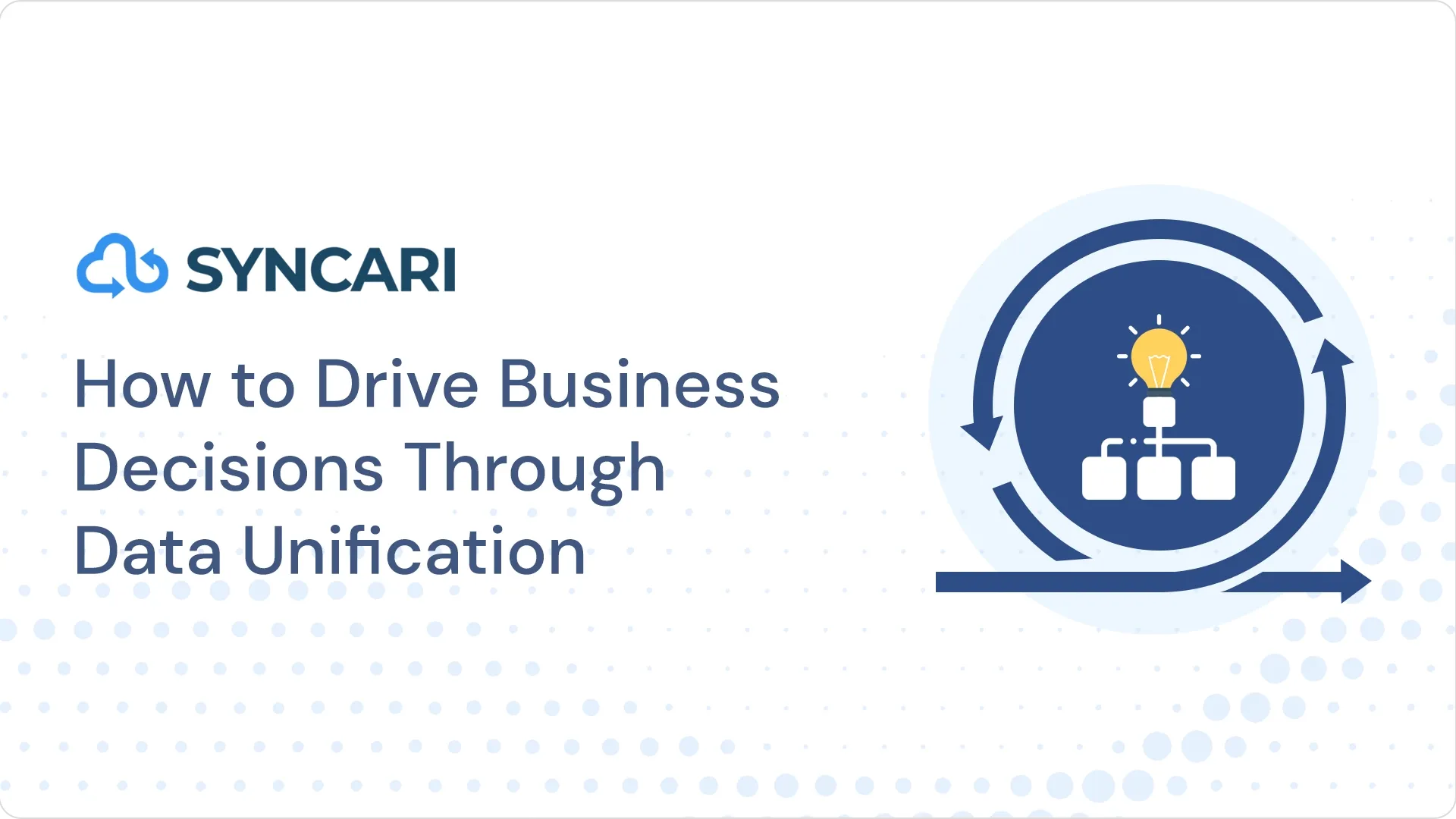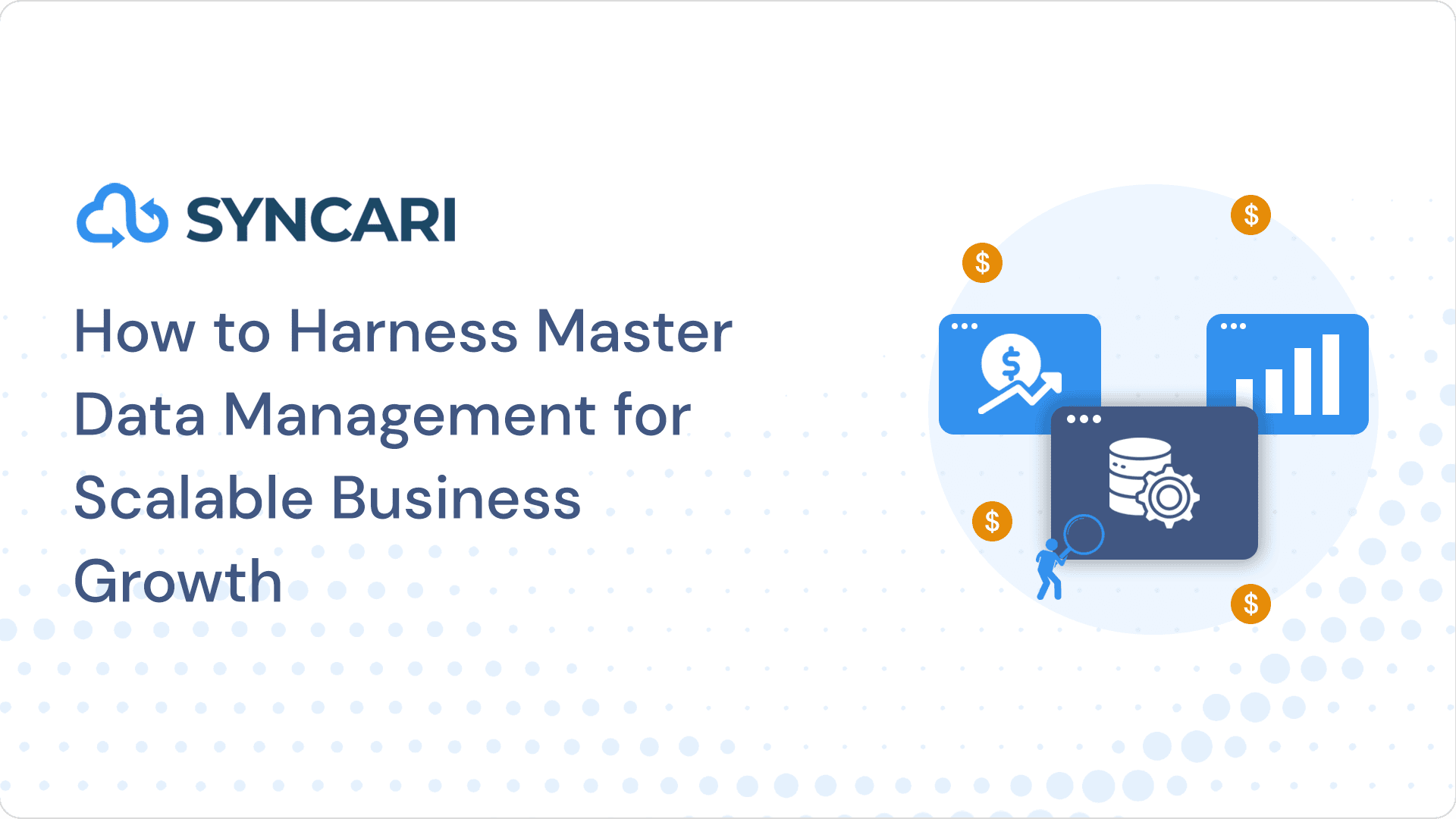Customer Relationship Management (CRM) and Enterprise Resource Planning (ERP) systems play vital roles in driving business growth and operational efficiency. While CRM manages customer interactions and relationships, ERP software integrates core business processes. However, the true power lies in these software solutions seamless integration.
In this blog post, we will explore the importance of CRM and ERP integration and how it can transform businesses. By connecting these systems, businesses can achieve a unified view of customers, streamline processes, and foster cross-functional collaboration. Let’s dive in and discover the transformative potential of CRM and ERP integration.
Understanding CRM and ERP Systems
Deep dive into CRM: Purpose and Benefits
CRM, or Customer Relationship Management, is a software system designed to manage customer interactions, relationships, and data. Its primary purpose is to streamline and enhance customer-centric processes across sales, marketing, and customer service departments. CRM software provides a centralized hub for storing and analyzing customer data, enabling businesses to better understand their customers, track interactions, and deliver personalized experiences.
The benefits of CRM software are numerous. It helps businesses improve customer satisfaction by enabling personalized communication and tailored experiences. CRM systems also enhance sales effectiveness by providing valuable insights into customer preferences, allowing sales teams to prioritize leads and opportunities. Moreover, CRM software enables efficient marketing campaigns by segmenting customers, automating workflows, and tracking campaign performance. Ultimately, CRM software empowers businesses to build stronger customer relationships, drive customer loyalty, and boost revenue.
Deep dive into ERP: Purpose and Benefits
ERP, or Enterprise Resource Planning, is a comprehensive software solution that integrates various core business processes such as finance, human resources, inventory management, supply chain, and manufacturing. The purpose of ERP software is to centralize and streamline these processes, enabling data-driven decision-making, optimizing operations, and improving overall efficiency.
The benefits of ERP are extensive. By consolidating data and automating workflows, ERP systems enhance operational visibility and enable better resource management. They facilitate accurate and timely financial reporting, support effective inventory management, and streamline procurement processes. An ERP system can also improve collaboration and communication across multiple departments, breaking down information silos and promoting cross-functional efficiency. Overall, having an ERP system can empower businesses to streamline processes, reduce costs, and enhance productivity.
How They Function Independently and the Challenges
While CRM and ERP software offer significant benefits on their own, they also present unique challenges when functioning independently. CRMs focus primarily on managing customer relationships (for example hotel CRM), whereas ERPs concentrate on operational processes. This separation can result in data silos, inefficient workflows, and disjointed information flow.
One of the challenges lies in the lack of a unified view of customer data. Without integration, customer data may be scattered across multiple systems, making it difficult to gain a holistic understanding of customers and their interactions. This fragmentation hampers personalized customer experiences and inhibits effective cross-department collaboration.
Another challenge is the duplication of efforts and manual data entry when information needs to be shared between CRM and ERP software. Inefficient data synchronization can lead to errors, time delays, and inconsistencies, affecting decision-making and customer service quality.
To overcome these challenges, businesses recognize the critical importance of CRM ERP integration. By seamlessly connecting these systems, organizations can break down data silos, achieve a unified view of customer data, streamline processes, and drive operational efficiency. In the next section, we will explore the transformative potential of CRM ERP integration and the benefits it brings to businesses.
Why are CRM ERP integrations Necessary?
Unified Systems are Critical to Growth
In today’s interconnected business landscape, the integration of CRMs and ERPs has become a necessity rather than a luxury. Businesses recognize the critical need for unified systems that bring together customer data and operational processes. By integrating CRMs and ERPs, organizations can unlock a wealth of benefits and achieve a seamless flow of information across multiple departments.
Unified systems provide a holistic view of the customer, combining valuable customer relationship data from CRM systems with operational data from ERP. This integration enables businesses to gain a comprehensive understanding of their customers, their preferences, and their interactions throughout the entire customer journey. With this unified view, organizations can create personalized experiences, tailor their offerings, and optimize customer interactions at every touchpoint.
The Problems with Isolated Operations
Isolated operations, where CRMs and ERPs function independently without integration, can lead to a range of challenges and inefficiencies. These problems stem from the disjointed nature of operations and the lack of seamless information flow between customer-centric and operational processes.
One of the major problems of isolated operations is the fragmentation of data. Customer data resides in the CRM system, while operational data such as orders, inventory, and financials are managed in the ERP system. This separation creates data silos, making it difficult to have a comprehensive and real-time understanding of customers. Lack of data synchronization can result in missed opportunities, redundant efforts, and inconsistencies in customer data.
Furthermore, isolated operations hinder effective collaboration and communication between departments. Sales, marketing, finance, and operations teams often work in isolation, leading to a lack of alignment and coordination. Without integration, there is a higher chance of miscommunication, delays in information sharing, and a disjointed customer experience.
Inefficiencies and manual workarounds are also prevalent in isolated operations. Without CRM ERP integration, processes that involve data exchange between systems often require manual data entry or duplicate efforts. This not only consumes valuable time and resources but also increases the risk of errors and inconsistencies.
To address these problems and unlock the full potential of CRMs and ERPs, businesses must prioritize CRM ERP integration. The integration of customer-centric and operational data allows for a seamless flow of information, fosters collaboration, and drives efficiency. In the next section, we will explore the benefits that CRM ERP integration brings to businesses and how it transforms operations for enhanced performance and customer happiness.
What are the Benefits of CRM ERP integrations?
Enhancing Data Accuracy
How Integration Enhances Data Accuracy
CRM ERP integration plays a crucial role in improving the accuracy of data across an organization. By connecting customer-centric data from CRM with operational data from ERP, businesses can ensure a single source of truth and eliminate discrepancies that arise from working with separate systems. Integration enables real-time data synchronization, ensuring that customer information, orders, inventory, and financial data are always up to date and consistent.
Benefits of Improved Data Accuracy
Improved data accuracy has numerous benefits for businesses. It enables better decision-making, as executives and managers can rely on accurate and complete information when formulating strategies or assessing performance. Additionally, accurate data enhances forecasting and planning capabilities, enabling organizations to make more informed predictions and allocate resources effectively. With reliable data, businesses can identify trends, patterns, and customer preferences, allowing for targeted marketing campaigns and personalized customer experiences.
Streamlining Business Processes
How Integration Results in More Efficient Processes
CRM ERP integration streamlines business processes by eliminating manual data entry and duplicate efforts. Data flows seamlessly between systems, eliminating the need for employees to switch between applications or re-enter information. This automation reduces the risk of errors, saves time, and frees up resources for more value-added tasks. For example, when a new customer is added to the CRM system, their data is automatically updated in the ERP system, ensuring a smooth and efficient order processing and fulfillment process.
Impact on Productivity and Business Efficiency
The streamlining of processes through integration significantly improves productivity and business efficiency. Employees can focus on core responsibilities instead of mundane administrative tasks, leading to increased job satisfaction and engagement. With integrated systems, teams can collaborate seamlessly, accessing the same information and working together towards common goals. This collaboration and efficiency drive overall business performance, enabling organizations to achieve their objectives more effectively.
Improving Customer Experience
Role of Integration in Enhancing Customer Experience
With unified systems, businesses gain a 360-degree view of their customers, enabling them to understand their preferences, purchase history, and interactions across departments. This comprehensive view allows organizations to provide personalized and consistent experiences, whether it’s through targeted marketing campaigns, tailored product recommendations, or efficient customer service. Integration also enables seamless order management, accurate delivery tracking, and timely response to customer inquiries, further enhancing the customer journey.
Connection between Customer Satisfaction and Business Success
Delivering an exceptional customer journey is closely tied to business success. Satisfied customers are more likely to become repeat buyers, refer others to the business, and contribute to positive brand reputation. CRM ERP integration enables organizations to meet customer expectations, resolve issues promptly, and create meaningful interactions at every touchpoint. By prioritizing customer satisfaction through integration, businesses can build long-term customer loyalty, drive revenue growth, and gain a competitive edge.
Driving Business Success
How Integration Supports Decision-Making Processes
CRM ERP integration provides decision-makers with accurate and real-time data for informed decision-making. Executives can access comprehensive reports and analytics that combine customer insights with operational performance metrics.
This holistic view enables data-driven decision-making, allowing organizations to identify opportunities, mitigate risks, and optimize business strategies. Integration empowers decision-makers with the information they need to make sound judgments and propel the business forward.
The Role of Integration in Increasing Profitability and Growth
Integration of CRM and ERP systems directly impacts a company’s profitability and growth. By leveraging accurate data, streamlining processes, and enhancing the customer journey, businesses can increase operational efficiency, reduce costs, and improve revenue generation.
Integration enables organizations to identify upselling and cross-selling opportunities, target high-value customers, and optimize sales and marketing efforts. These factors contribute to increased profitability, market share expansion, and sustainable growth in a competitive business landscape.
CRM ERP integration brings a multitude of benefits to organizations. It enhances data accuracy, streamlines business processes, improves the customer journey, supports decision-making processes, and drives business success. By harnessing the power of integration, businesses can optimize their operations, deliver exceptional experiences, and achieve their goals with efficiency and profitability.
The Role of Data Automation Platforms in CRM ERP integration
In the realm of CRM ERP integration, data automation platforms like Syncari have emerged as powerful solutions that bridge the gap between CRM and ERP systems. Syncari’s data automation platform offers a comprehensive suite of tools designed to simplify and streamline the integration process, enabling businesses to harness the full potential of their CRM and ERP systems.
How Syncari Facilitates CRM ERP integration
Syncari serves as a central hub for data management, unifying and synchronizing customer data from CRM systems and operational data from ERP systems. It breaks down data silos, ensures data accuracy, and enables real-time data synchronization between systems. Syncari’s advanced algorithms and automation capabilities seamlessly integrate disparate systems, providing a unified view of customer interactions, orders, inventory, and financial data.
Syncari’s platform offers flexible data mapping, transformation, and validation features, allowing businesses to customize the integration process to meet their specific needs. Its data governance and compliance tools ensure data security and regulatory compliance, giving organizations peace of mind when managing sensitive customer information.
Benefits and Testimonials from Businesses That Have Used Syncari
The benefits of Syncari’s data automation platform for CRM ERP integration are evident in the success stories of businesses that have adopted this solution. By implementing Syncari, organizations have experienced significant improvements in operational efficiency, data accuracy, and customer experience.
Businesses such as Viz.ai and DealNews have reported enhanced data accuracy, resulting in improved decision-making and better customer insights. With a unified view of customer data, teams can deliver personalized experiences, targeted marketing campaigns, and seamless order management. The streamlined processes enabled by Syncari have reduced manual efforts, increased productivity, and allowed teams to focus on strategic initiatives.
Overall, Syncari’s data automation platform has proven to be instrumental in facilitating CRM ERP integration, unlocking the full potential of these systems for businesses. Its comprehensive features, data governance capabilities, and success stories from satisfied users demonstrate its effectiveness in streamlining operations, improving data accuracy, and driving customer-centric strategies.
Syncari’s data automation platform plays a pivotal role in CRM ERP integration by simplifying the process, ensuring data accuracy, and empowering organizations to leverage their CRM and ERP systems to their fullest potential.
By implementing Syncari, businesses can overcome the challenges of integration, streamline their operations, and unlock the benefits of unified customer and operational data. With Syncari, organizations can transform their data management processes, optimize decision-making, and enhance the customer journey, ultimately driving business success
How to Successfully Integrate Your CRM and ERP Systems with Syncari
Step-by-Step Guide to the Integration Process
Integrating your ERP and CRM systems can seem like a complex task, but with Syncari’s data automation platform, the process becomes much more manageable. Here is a step-by-step guide to help you successfully integrate your ERP and CRM systems using Syncari:
- Assess Your Data: Begin by evaluating the data you need to integrate from both your ERP and CRM software. Identify the key data elements that are crucial for a unified view of your customer interactions, sales, orders, inventory, and financial data.
- Map Your Data: Use Syncari’s data mapping capabilities to align the data fields from your ERP and CRM systems. Create a clear and consistent mapping schema that ensures data accuracy and consistency across systems.
- Define Data Transformation Rules: Determine how the data should be transformed and formatted to ensure compatibility between your ERP and CRM systems. Syncari’s platform allows you to define custom data transformation rules to meet your specific integration requirements.
- Establish Data Synchronization: Set up real-time or scheduled data synchronization between your ERP and CRM systems using Syncari’s data automation tools. This ensures that any changes or updates made in one system are reflected in the other system in a timely manner.
- Test and Validate: Before fully deploying the integration, thoroughly test the data synchronization and validation processes. Validate that the data is accurately synchronized, and verify the integrity of the integrated data.
- Monitor and Maintain: Once the integration is live, regularly monitor and maintain the synchronization between your ERP and CRM software. Address any data inconsistencies or errors promptly to ensure a seamless integration experience.
Tips for Successful Integration
To ensure a successful integration between your CRM and ERP systems using Syncari, consider the following tips:
- Plan Ahead: Take the time to plan and define your integration strategy. Clearly outline your objectives, identify the data elements to be integrated, and establish realistic timelines and milestones.
- Involve Key Stakeholders: Engage key stakeholders from both the CRM and ERP teams in the integration process. Collaboration and communication are essential to ensure a smooth and coordinated effort.
- Leverage Syncari’s Expertise: Take advantage of Syncari’s expertise and resources. Their support team can provide guidance, best practices, and recommendations based on their experience with CRM ERP integration projects.
Common Pitfalls to Avoid During Integration
While integrating your CRM and ERP systems with Syncari, be mindful of these common pitfalls to avoid:
- Insufficient Data Governance: Neglecting data governance can lead to inaccurate or inconsistent data during integration. Establish data governance policies, data quality standards, and ongoing data management practices to ensure data integrity.
- Inadequate Testing: Inadequate testing can result in data synchronization issues or incorrect data mapping. Thoroughly test the integration process before deploying it in a production environment to identify and resolve any potential issues.
- Lack of User Adoption: Ensure that your teams are adequately trained on the integrated CRM and ERP systems. Without proper user adoption and training, the benefits of integration may not be fully realized.
By following this step-by-step guide, implementing the provided tips, and avoiding common pitfalls, you can successfully integrate your CRM and ERP systems using Syncari. The seamless integration of these systems will enable your organization to leverage accurate and synchronized data, streamline business processes, and drive better customer experiences, ultimately leading to improved productivity and business success.
Conclusion
Integrating your CRM and ERP systems with Syncari is the key to unlocking the full potential of your business. Through CRM ERP integration, you can achieve a unified view of the customer, streamline processes, and foster cross-functional collaboration. The benefits are numerous, ranging from enhanced data accuracy to improved customer experience and driving business success.
By leveraging Syncari’s data automation platform, you can simplify the integration process and ensure seamless data synchronization between CRM and ERP systems. Syncari’s advanced tools and capabilities enable you to map and transform data, establish real-time synchronization, and validate the integrated data. The success stories and testimonials from businesses that have used Syncari speak to its effectiveness in enhancing operational efficiency and data accuracy.
Take the first step towards CRM ERP integration today and embark on a journey that will revolutionize your business. Contact Syncari or visit their platform for further assistance and guidance. With Syncari’s data automation platform, you can streamline your operations, enhance the customer experience, and drive business success through seamless CRM ERP integration.


